A Legacy of Tradition,
Evolving from Tottori to the World
Chiyomusubi Sake Brewery was founded in 1865 (Keiō 1, Edo Period) in Sakaiminato, Tottori Prefecture.
In the Taishō era, the third-generation brewer, Rintarō Okasora, pursued advanced brewing studies at the Ministry of Finance’s Brewing Research Institute. His work led to the creation of acclaimed, full-bodied sake brands such as Yamato-damashii and Okamasamune, which were beloved by sake enthusiasts.
Later, the brewery adopted the name “Chiyomusubi”, meaning “eternal happiness and lasting bonds,” reflecting the heartfelt wish to bring joy and connection through sake.
Blessed by Nature — Rich Soil and Pristine Water
A Commitment to Local Ingredients
Tottori Prefecture is blessed with a rich natural environment, renowned spring water, and high-quality sake rice—an ideal setting for sake brewing.
Grateful for these natural blessings we primarily brew with carefully selected local ingredients.
Our brewing water is drawn from a pristine natural spring in Daitō Town nestled at the foot of the Chūgoku Mountains—an untouched source known only to locals.
For sake rice, we work closely with contract farmers who grow premium sakamai (sake rice varieties). Together, we are committed to promoting the value of Tottori-grown rice and sake, cultivating both quality and regional pride.
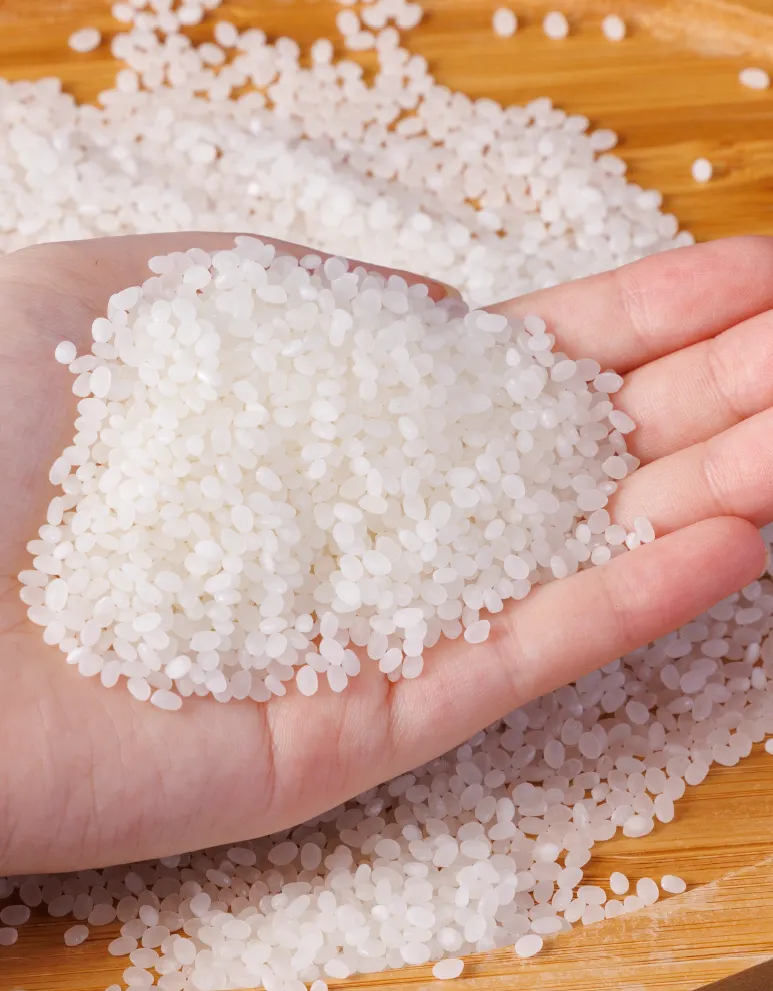
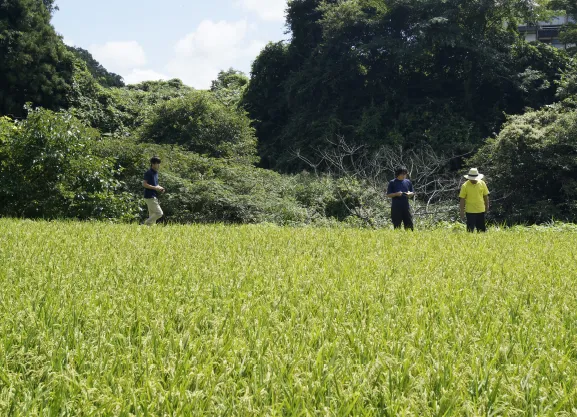
Award-Winning Sake —
Expanding from Japan to the World
Chiyomusubi has been honored with numerous awards at national sake competitions and appraisal events in Japan.
Our sake has rich and complex flavor and has gained popularity not only domestically but also internationally with growing demand from Asia North America, and Europe.
We are also active in overseas markets through our Korean subsidiary Jizake Chiyomusubi Korea (JCK). In addition to offering Chiyomusubi sake JCK curates and distributes carefully selected jizake (local sake) from across Japan. Through this effort, we strive to share the culture of sake and promote wellness around the world.
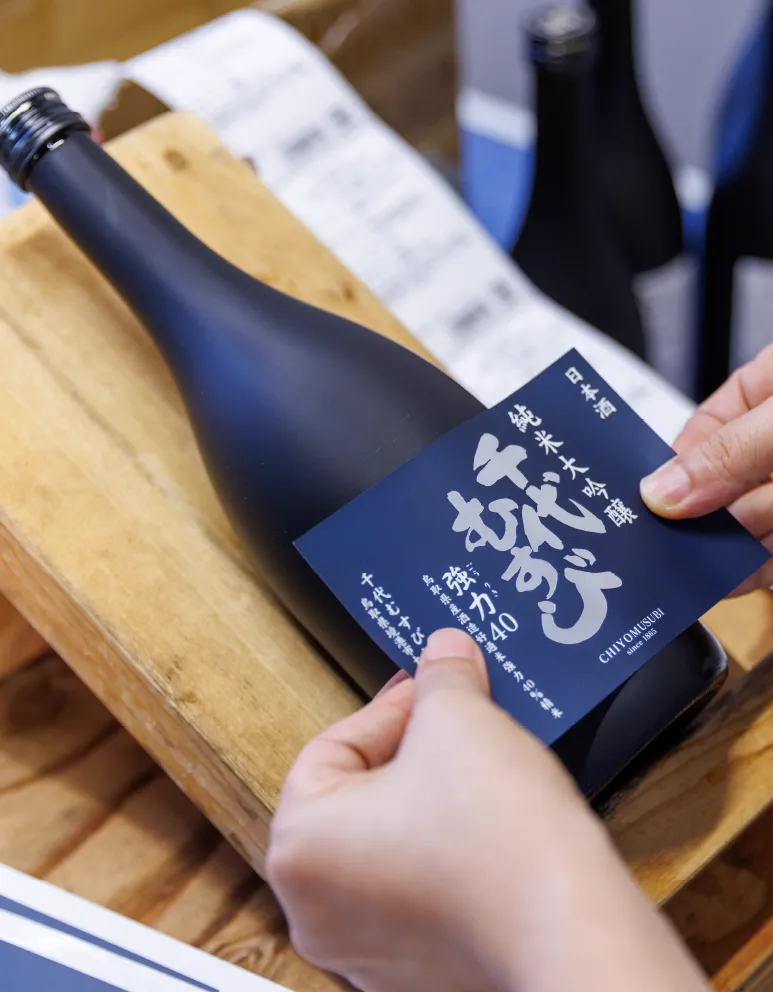
A New Initiative
to Share
the Joy of Sake
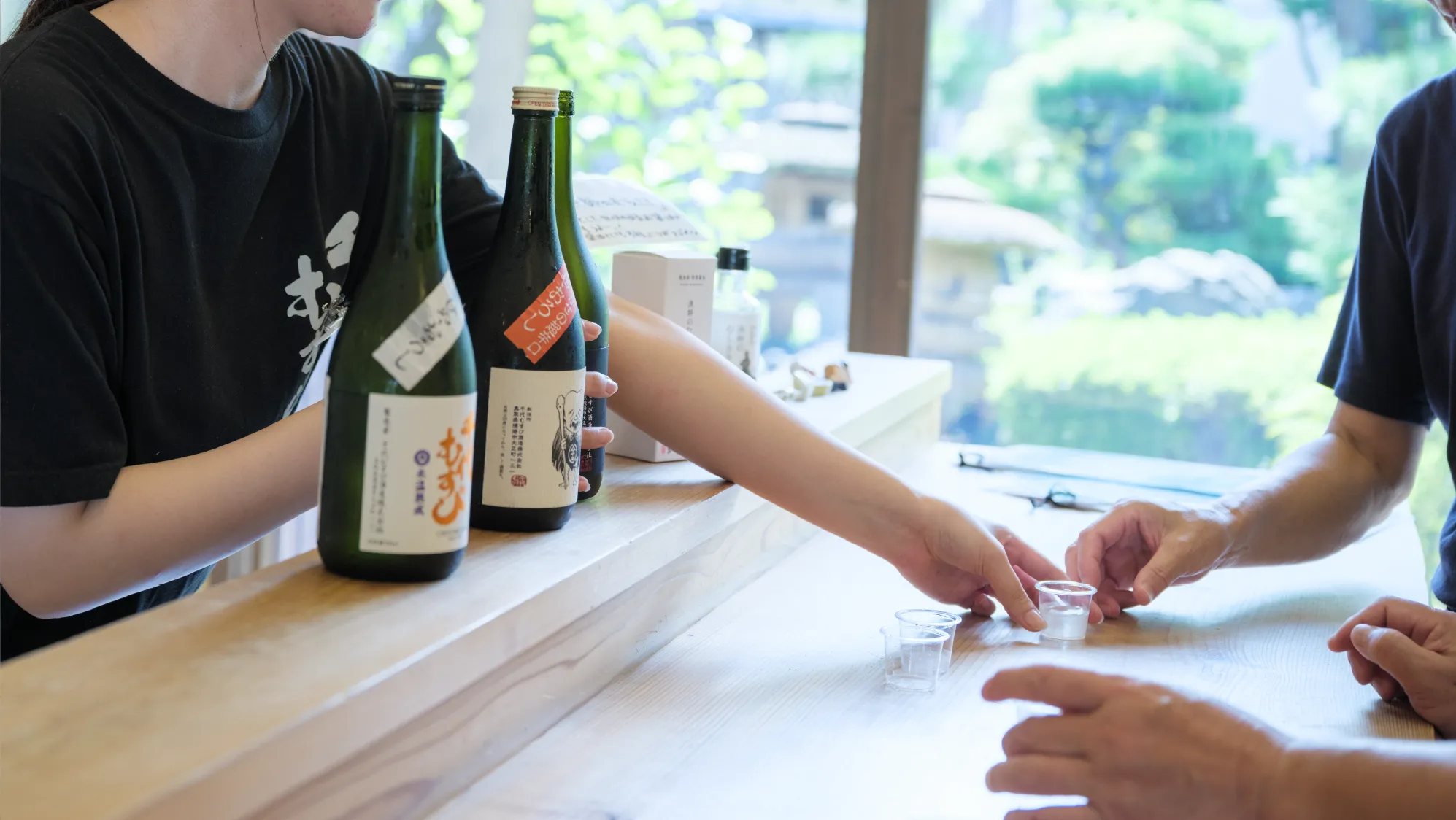
A Space to Experience and
Celebrate Japanese Sake Culture
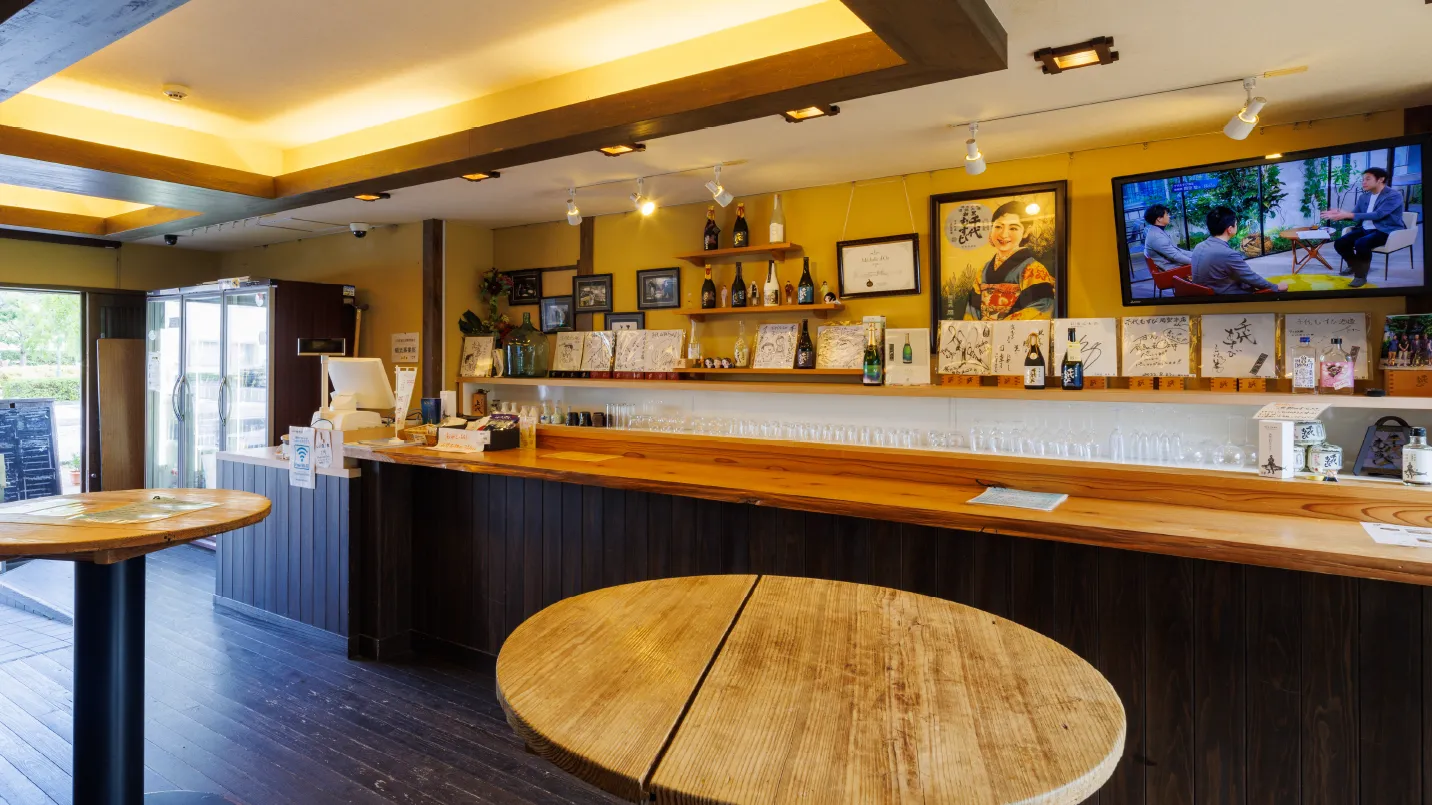
At the Chiyomusubi Sake Brewery Okasora Main Store in Sakaiminato City we have opened a kaku-uchi—a traditional standing bar located within a sake shop.
The counter is crafted from a single luxurious slab of Chizu-grown Tottori cedar and the round tabletops are made from repurposed lids of old sake barrels, reflecting our deep attention to detail and respect for tradition.
This curated space welcomes both locals and international visitors as a hub for discovering and experiencing the depth and beauty of Japanese sake culture.
Toward a New Horizon:
The Fermentation Industry
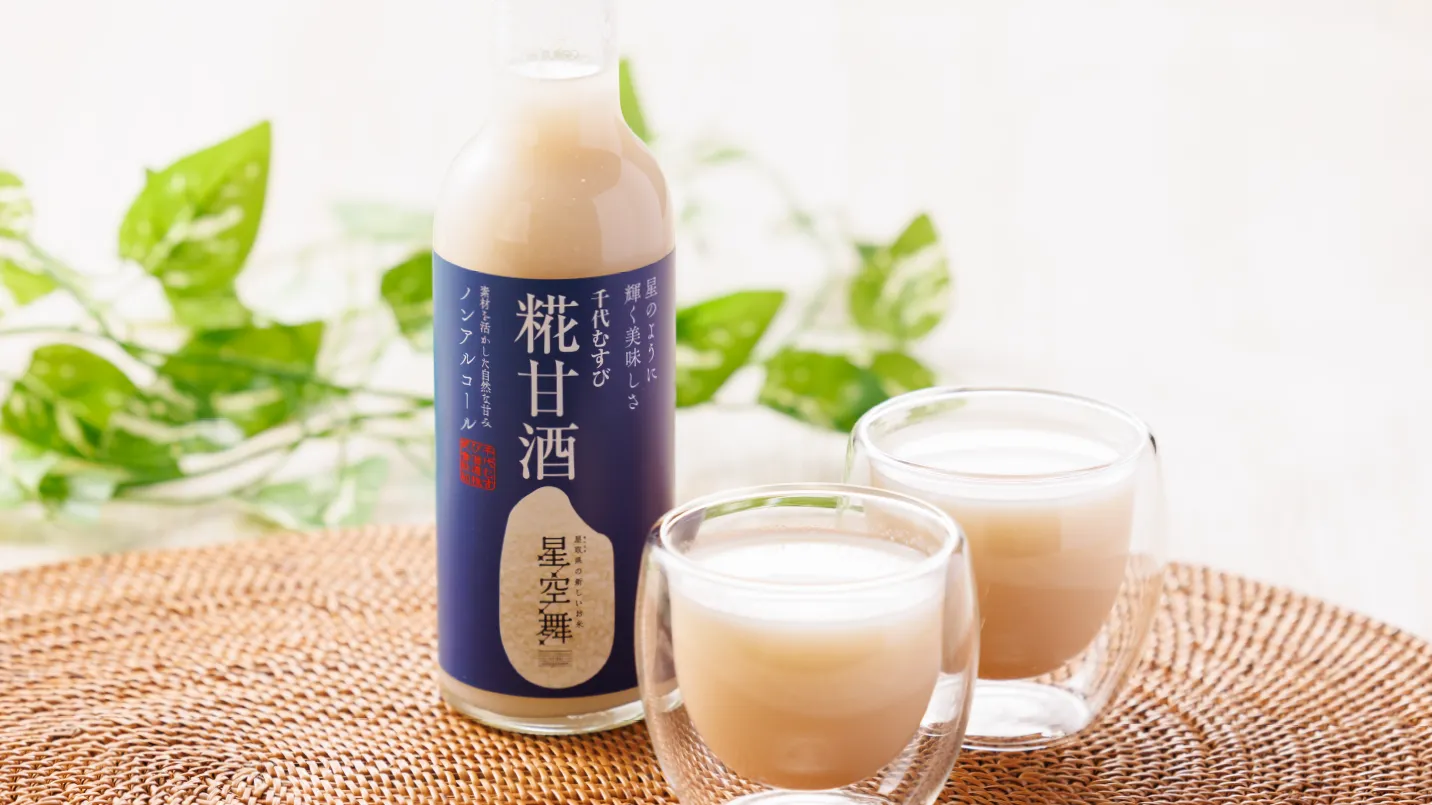
Harnessing our traditional sake-brewing techniques and the power of fermentation—such as the use of koji and other beneficial microorganisms—we have begun developing health-oriented fermented foods.
Through much trial and error we successfully created our original Koji Amazake a naturally sweet non-alcoholic beverage rich in nutrients.
With this step, we are evolving into more than just a sake brewery. We aim to become a pioneer in the fermentation industry expanding from Tottori to the world as a heritage brand in transformation.
Chiyomusubi’s Passion for Sake Brewing
We strive for a forward-thinking approach to sake brewing by combining the best of traditional craftsmanship with the fresh perspectives and techniques of a new generation.
Our commitment is to continual progress, innovation, and positivity in every step of the brewing process.
-
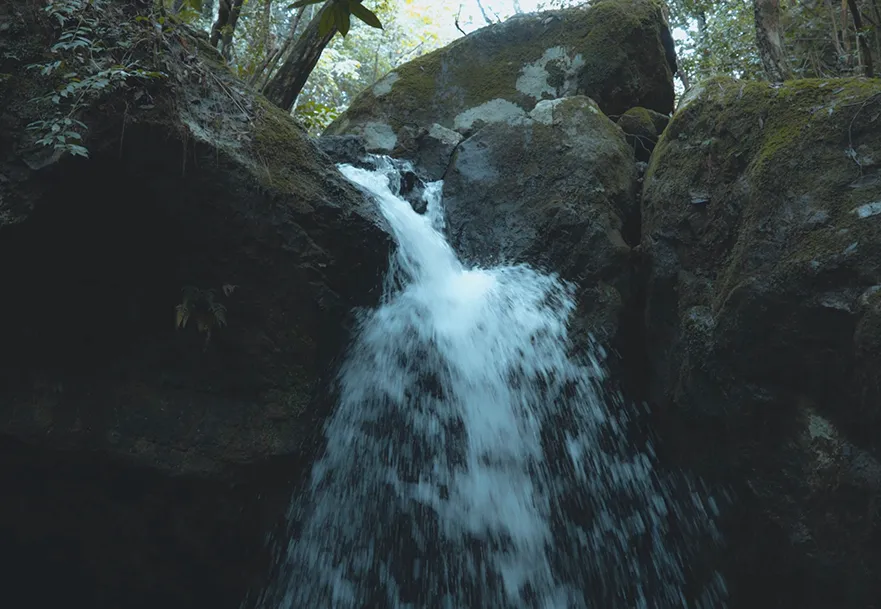
Brewing Water
We source our brewing water from Daito Town in Unnan City Shimane Prefecture nestled at the foot of the remote and pristine Chugoku Mountains.
A dedicated tank has been installed at the site, and during the brewing season, we make daily trips to collect this water by hand.
It is a slightly soft water. -
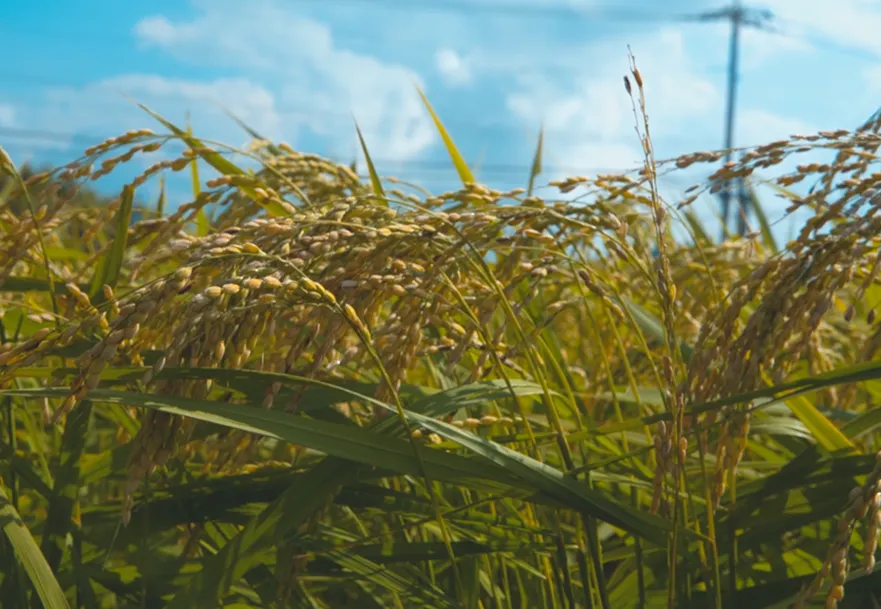
Rice
We primarily use Yamada Nishiki, Gohyakumangoku, and Goriki—premium sake rice varieties grown in Tottori Prefecture.
Each year we increase our direct procurement from local farmers building strong relationships with producers and honoring the origins of our ingredients. -
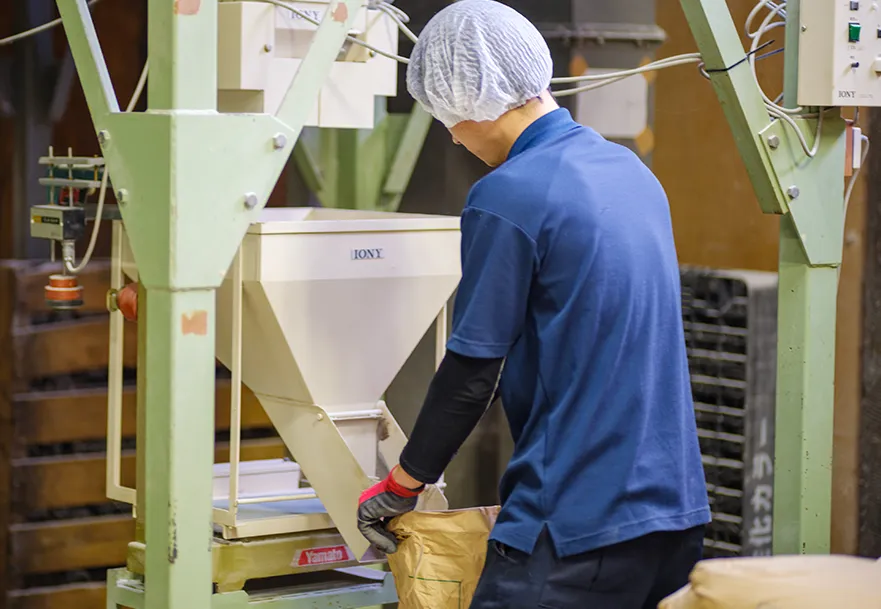
Rice Polishing
We also polish rice in-house ensuring strict quality control and consistently high standards in every batch.
-
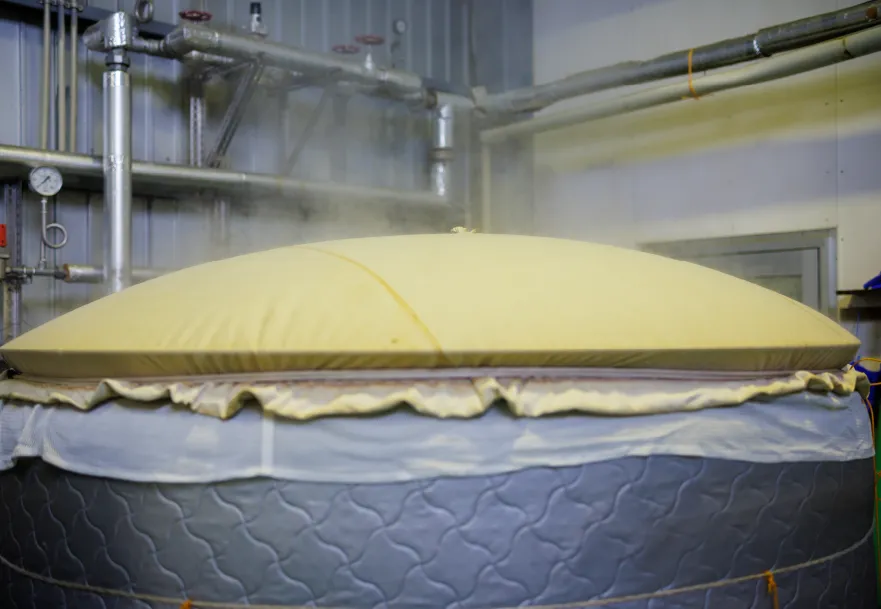
Steaming
We place special emphasis on the rice steaming process conducting extensive research to perfect it.
By using two steamers of different sizes(big and small) and indirect steam we achieve the ideal dry steam that is unaffected by weather or atmospheric pressure.
This allows us to consistently produce steamed rice with a firm outer layer and soft core—the optimal texture for sake brewing. -
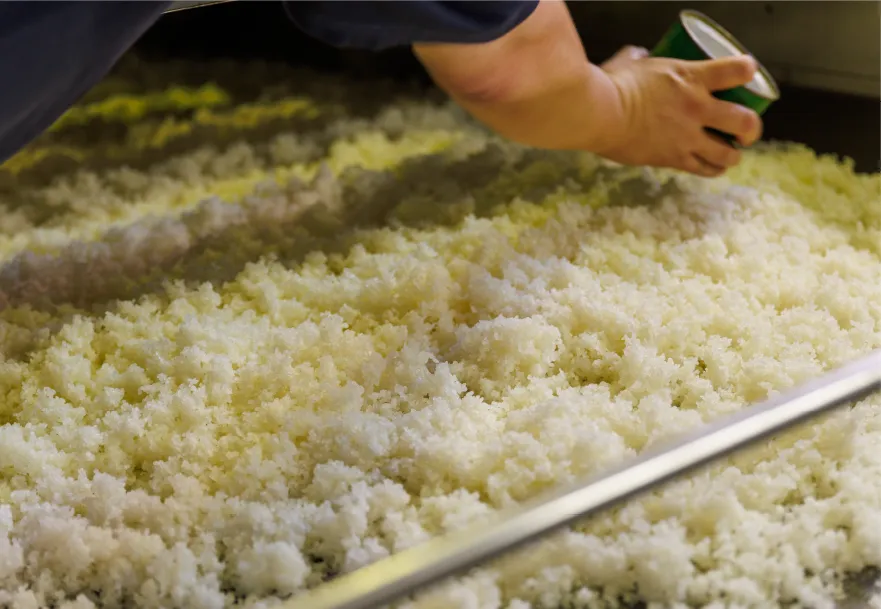
Koji making
Our koji-making facility is carefully divided into specialized rooms: one for rice spreading (toko-momi) and another for rice mounding (mori), both essential steps in traditional futa-koji (box-style) production.
The finishing room (de-koji) is also equipped with humidity control and drying systems, ensuring precise environmental management throughout the process. -
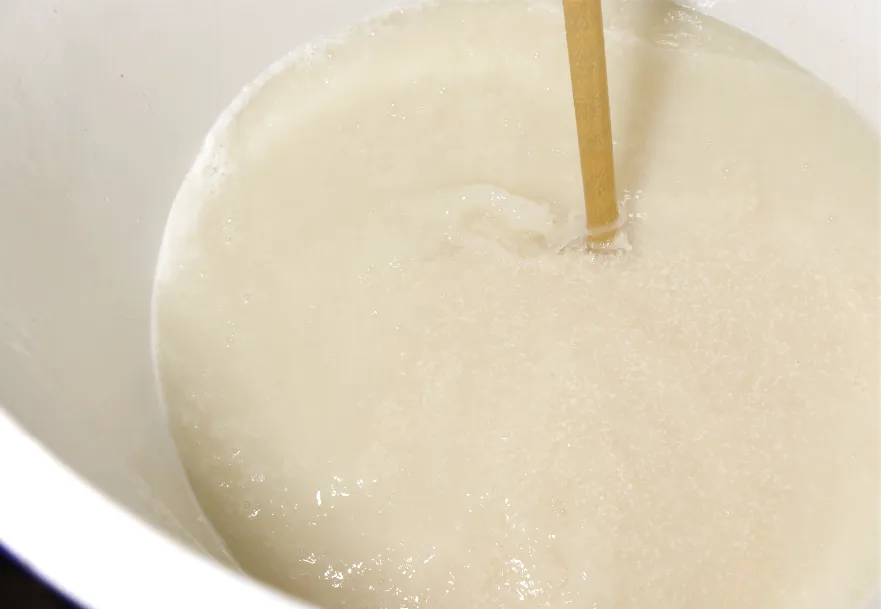
Yeast Starter (Shubo) Preparation
We maximize the unique characteristics of each yeast strain while eliminating unwanted bacteria and microbes, focusing on cultivating only strong, highly active yeast.
By allowing ample time for the “karashi” (resting) period, we create a robust and vigorous yeast starter (shubo).
Each year, we preserve the best-performing yeasts to continually improve our strains.
Our brewery boasts a diverse collection of yeast varieties, enabling flexible and high-quality sake production. -
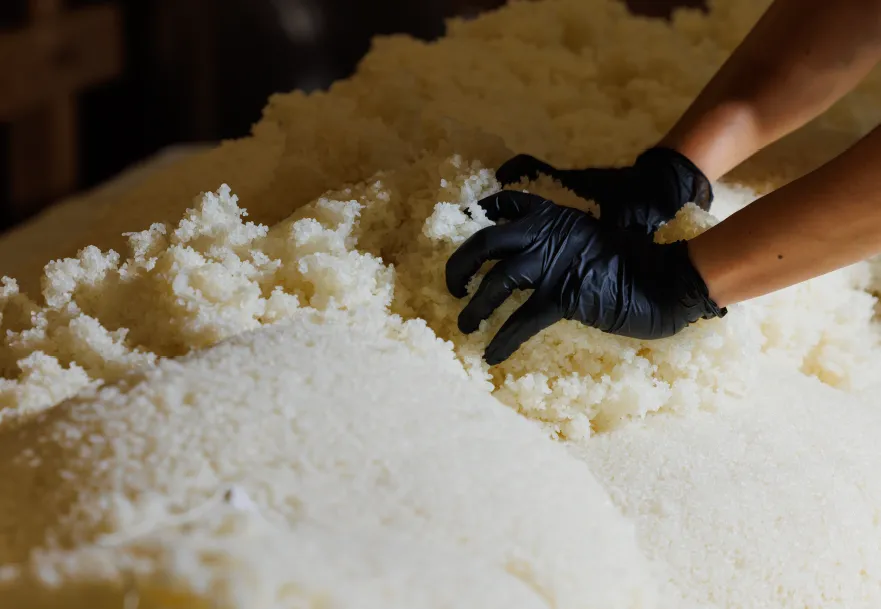
Natural Cooling
To ensure even and thorough cooling of the steamed rice all the way to its core, we rely not on machines but on the hands and judgment of our craftsmen.
This traditional natural cooling method allows us to maintain uniformity and quality at every stage. -
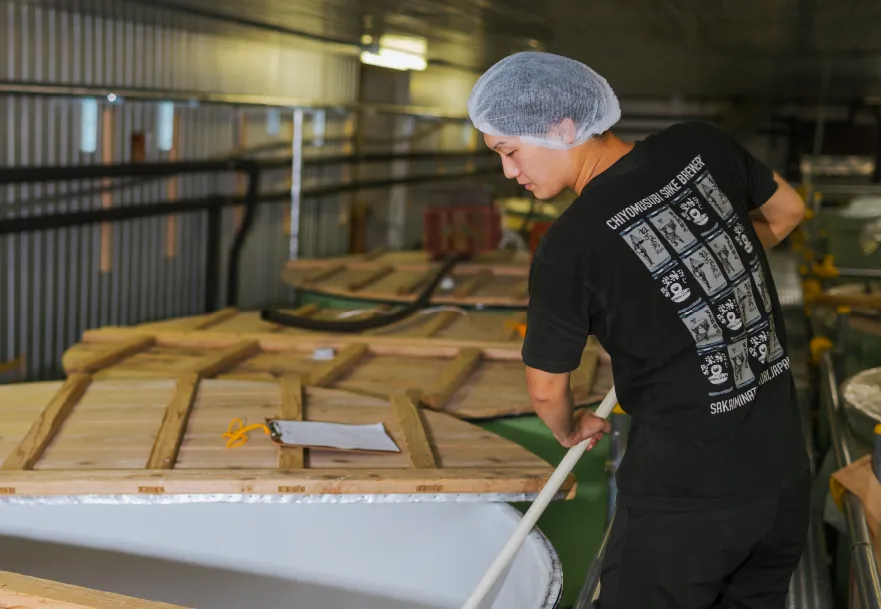
Fermentation (Shikomi)
The fermentation process is carefully temperature-controlled at low levels to ensure quality.
As a standard we use 600 kg of polished rice for Daiginjo and 800 kg for Ginjo production maintaining consistency and precision throughout the brewing. -
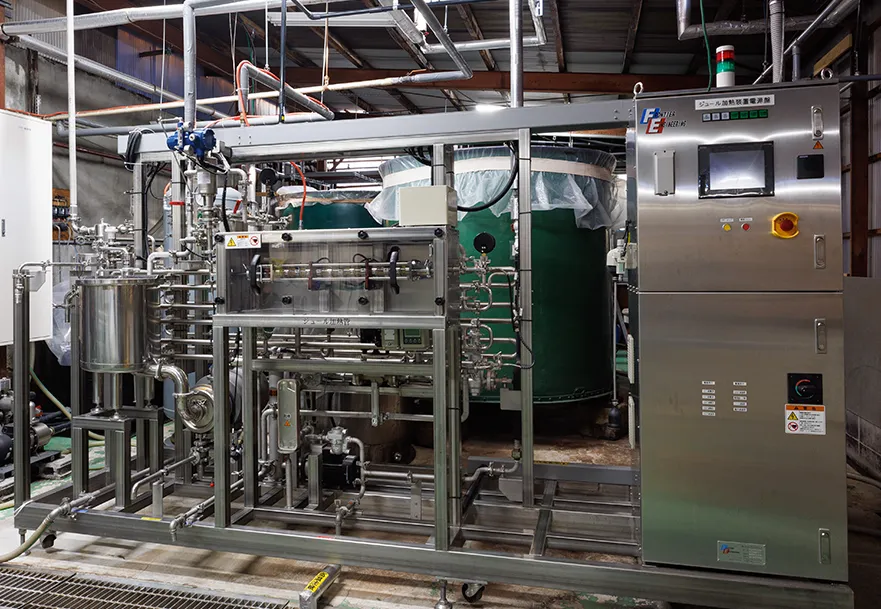
Filtration & Bottle Pasteurization
Since 2020 we have adopted a new sterilization method known as Joule heating.
This advanced technique enables us to produce pasteurized sake that retains a fresh, lively character—reminiscent of unpasteurized sake (namazake). -
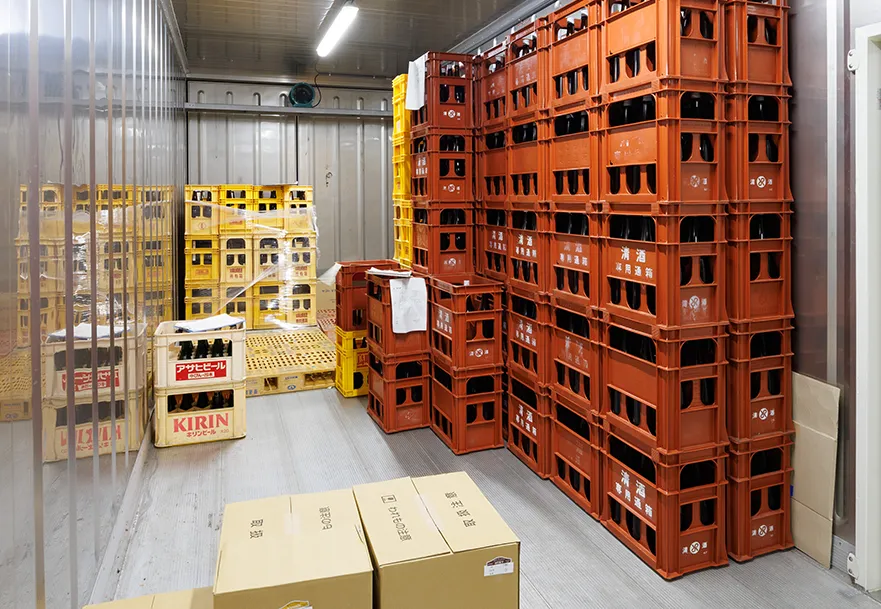
Storage
As a general rule after pressing (joso), our sake is stored in bottles and kept under strict refrigerated conditions to maintain optimal freshness and quality.





 CONTACT
CONTACT ONLINE STORE
ONLINE STORE